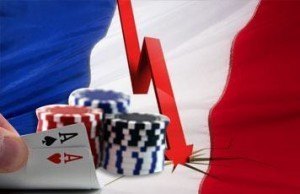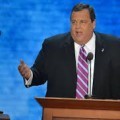
French Online Gambling Market On The Verge Of Being Fried

For the third consecutive year, the French online gambling industry and iPoker has continued to decline in participation and revenues, prompting gaming authorities in the country to call on change to the current tax system. (Image: gamblingkingz.com)
French online gambling became legalized in 2010, but since peaking in February of 2012, online poker has suffered a continued decline in cash game traffic over the last three years.
Once occupying more than 5,700 seats on 30-day roving averages, traffic is now averaging just 2,600 virtual chairs, a decline of more than 54 percent.
ARJEL, the regulatory authority for online games, cites the country’s high taxation rates on gambling as the leading culprit in the persistently waning numbers, which in turn correlates to poor revenues and ultimately tax generation.
But lawmakers in France are unwilling to reduce its seemingly exorbitant tariff, a decision that, according to ARJEL, runs the risk of losing over 2,000 jobs as continued networks flee the market.
Pardon My French!
Politicans have conceded that liquidity across international borders is a required alteration, but they are holding steadfast on taxes, even though AFJEL, the country’s online gambling trade body that represents operators, concluded in its five-year market review that taxes are the utmost concern.
AFJEL reported that the effective tax rate on Internet gambling in France is 46.30 percent, considerably higher than the 25 percent in Spain, 20 to 25 percent in Italy, 20 percent in Denmark, and 15 percent in England.
The heavy burden being placed on operators already struggling to bring in revenues has led to half of the licensed networks discontinuing their services in France.
Microgaming, Full Tilt, OnGame, Barriere Poker and Partouche have all skipped town, leaving just five rooms including market leader Winamax.
AFJEL is calling on French authorities to adjust the tax system to only gross profits instead of gross revenues, and also reduce tax rates to mirror other European Union markets, two concepts that will likely fall on deaf ears.
Taxes Are Taxing
It’s understandable countries that legalize online gambling want to make a profit, but it appears the French are kissing the industry goodbye through the squeezing of revenues. And other jurisdictions would be smart to learn from France’s mistakes.
Case in point, Pennsylvania, the sixth most-populated state in America, is actively pursuing legalizing online gambling, but its leading bill in the State Senate comes with an astronomical gross revenues tax rate of 54 percent.
The government taking more than half of the cake before it’s even served isn’t exactly the warm welcome gaming companies will be looking for when considering their next market entry.
Taxes are, unfortunately, a needed evil to properly run a strong government. They fund everything from education to defense, but taxing one industry in particular to the point where it ceases to exist obviously only leads to a reduction in overall tax revenue. After all, a 10 percent tax on $10 million translates to more generated tax revenue than a 45 percent tax on $1 million.
It’s a fine line when it comes to the appropriate tax rate on Internet gaming companies and card rooms, and while it’s not a one-size-fits-all sort of economic decision, it’s safe to say the France online gambling current rate would likely fit none.















0 Comments